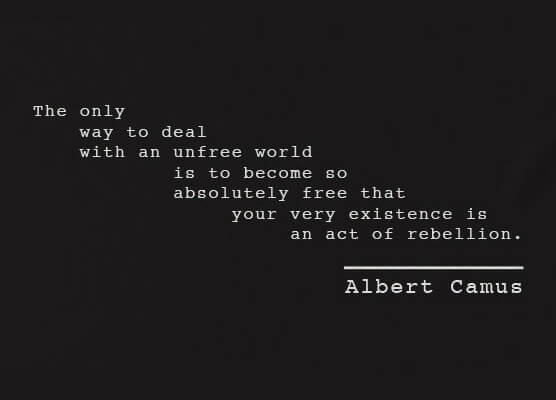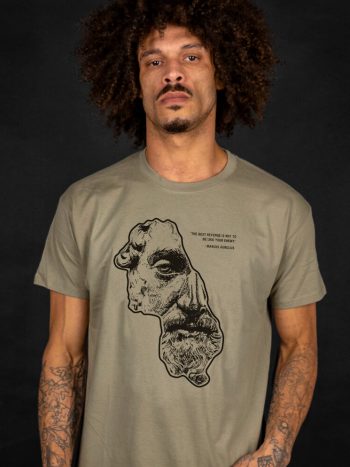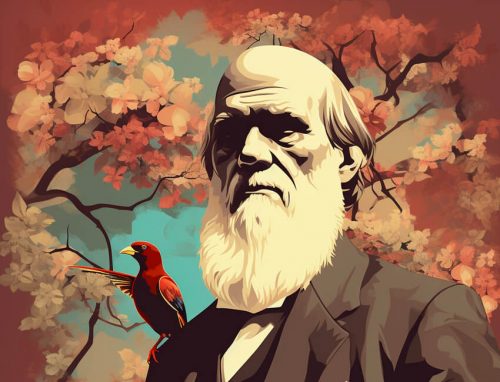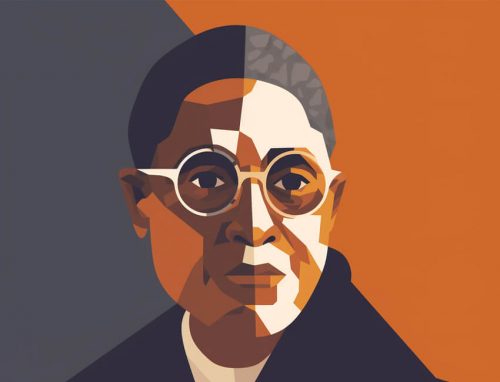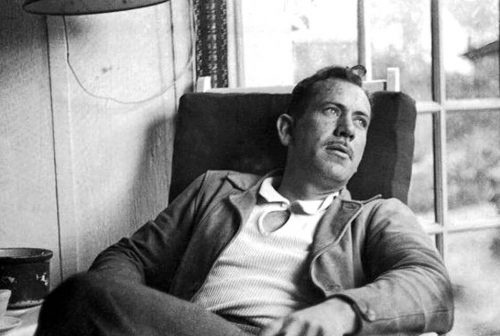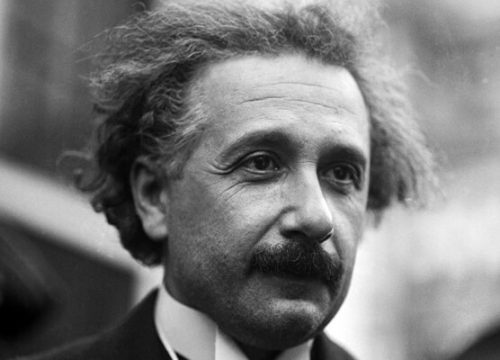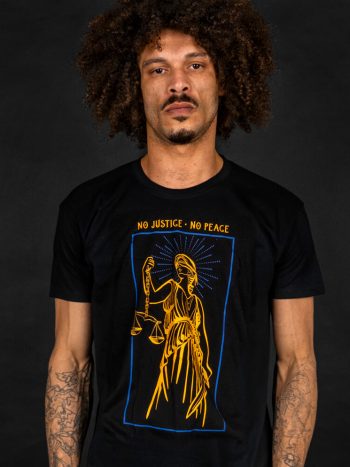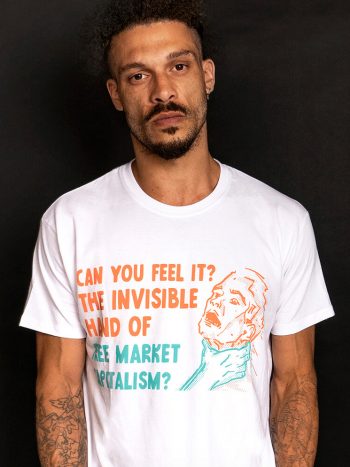Albert Camus was a French-Algerian philosopher, author, and journalist, best known for his contributions to the philosophy of existentialism. Throughout his life, Camus was an advocate for freedom and rebellion, arguing that the only way to deal with an unfree world is to become so absolutely free that your very existence is an act of rebellion. It’s one of our best-selling t-shirts, so let’s explore Camus’ views on protest and rebellion, and how they fit within Existentialism as a philosophy.
Camus on Rebellion
Camus’ concept of rebellion is one of the central themes of his philosophy. For Camus, rebellion is not simply about challenging authority or breaking rules; it is a fundamental human response to the absurdity and injustice of the world. In his essay “The Rebel,” Camus writes, “The rebel is a man who says no.” He argues that rebellion is a way for individuals to assert their humanity in the face of oppression and to create a sense of meaning in an otherwise meaningless world.
Camus believed that rebellion was a natural response to the absurdity and injustice of the world, but he also recognized that it could be dangerous. In his essay, he warns against the dangers of revolutionary violence, arguing that violence can never truly solve the problems of the world. Instead, he advocates for a form of rebellion that is grounded in moral principles and a commitment to justice.
Camus on Freedom
For Camus, freedom was not simply a political or legal concept, but a deeply existential one. He believed that freedom was essential to the human experience, and that individuals had a responsibility to assert their freedom in the face of oppression. In his essay “The Myth of Sisyphus,” Camus writes, “The only way to deal with an unfree world is to become so absolutely free that your very existence is an act of rebellion.”
Camus believed that true freedom could only be achieved by embracing the absurdity of the world and creating one’s own sense of meaning. He argued that individuals had to be willing to embrace the uncertainties and challenges of life in order to achieve true freedom.
Camus on Protest
Protest is another important theme in Camus’ philosophy. In his essay “Neither Victims nor Executioners,” Camus argues that protest is a way for individuals to assert their dignity and humanity in the face of oppression. He writes, “I rebel, therefore we exist.” Camus believed that protest was a way for individuals to take a stand against injustice and to create a sense of solidarity with others who are similarly oppressed.
In his literary works, Camus recognised that protest could take many different forms, from peaceful demonstrations to violent uprisings. However, he believed that the most effective forms of protest were those that were grounded in principles of non-violence and respect for human dignity. He writes, “The essential thing is to go on resisting, and that is the only way to oppose an unjust society.”
Albert Camus Shirts
-
£20Add to WishlistAdd to Wishlist
-
£20Add to WishlistAdd to Wishlist

